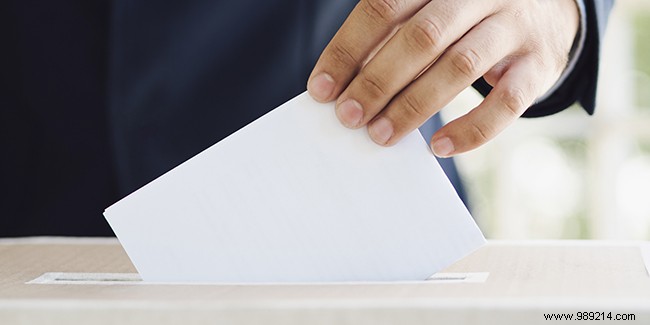
The right to vote is acquired for all citizens and it is therefore obviously also exercised for sick or dependent seniors. No specific provision exists in France concerning the vote of seniors unable to vote alone. The basic principle is that even dependent, the elderly must be able to continue to exercise their rights, their duties and their freedom of citizenship.
But for those who cannot move, who live in Ehpad (accommodation establishments for dependent elderly people) or retirement homes, who are under guardianship or curatorship, the ability to vote is not always easy. nor fully conscious.
Each senior who enters a medico-social establishment is given the charter of rights and freedoms of the elderly person with a disability or dependency. This charter recalls the fundamental rights and freedoms, including the right to vote. The resident can organize himself alone or with his family to go and vote. However, the establishment that welcomes the elderly must do everything possible so that they can exercise this right, even if no legal text obliges them to do so.
If the senior is registered in a polling station in the municipality where the establishment where he resides is located and if he has the physical capacity, transport can be organized for the elderly who wish to vote. For those who cannot travel for health reasons, the establishment can bring on site police or gendarmerie personnel who will establish powers of attorney for residents who so wish.
Guardianship is a legal protection measure that applies to an adult who no longer has the possibility of looking after his interests in the event of an alteration of his mental or bodily faculties which prevents him from expressing his will. A number of dependent seniors are in this situation. Guardianship limits the possibilities of action of the protected adult, but it does not remove the right to vote, which has been exercised personally since March 2019.
A senior under curatorship, a less restrictive legal protection measure than guardianship, can vote without the agreement of his curator (person appointed by the judge to assist him in acts that risk harming his assets or his person).
As with seniors in a retirement home, an elderly person under guardianship or curatorship who cannot travel to the polling station may request in writing, accompanied by a medical certificate, that a police officer judiciary come and collect his power of attorney on site.
The 2018-2022 planning and justice reform law published in the official journal of March 25, 2019 modified on many points the rules applicable to legal protection measures for people with disabilities or frailties. In particular, by repealing article L-5 of the electoral code, which made the right to vote of persons under guardianship subject to a decision by the judge, they obtain recognition of their full and complete citizenship; in addition, the law guarantees the principle of sincerity of the ballots by strictly regulating the proxies:thus, neither the agents in charge of protection, nor the employees at home, nor the natural persons who are administrators or employees (employees or volunteers) in the host institution where the person is located cannot receive power of attorney.
While certain practices have been put in place to allow sick seniors to exercise their right to vote on election day or beforehand by means of a power of attorney, there are still shortcomings in the preparation of this vote. Indeed, whether for sick and dependent elderly people in nursing homes or at home, information on candidates and their program is not necessarily accessible to them. Either this information does not reach them, or the voting documents distributed are not adapted to certain disabilities, such as the visually impaired for example.
But the question of voting is more difficult when it comes to elderly people who have lost part of their mental faculties, such as Alzheimer's patients. How and who can help them define their vote? When and who decides that the sick person can no longer choose for themselves? Very complicated questions, and without answers, to be managed by the family or by the medico-social establishments, since no particular provision exists in the matter.
It is common for these elderly people with Alzheimer's disease or any other dementia to have no idea which candidate to vote for. The family sometimes prefers that they "forget" to vote, but abuses exist when a relative puts the ballot paper he has chosen in the hand of the elderly person. Taking advantage of his vulnerability, it is then a form of abuse of weakness on the deficient elder.